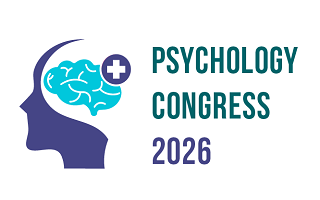3rd International Congress on
Psychology & Behavioral Sciences
March 26-27, 2026 | Osaka, Japan

Address: 1 Chome-9-15 Shinkitano, Yodogawa Ward, Osaka, 532-0025, Japan.
Psychology Congress 2026

Istanbul University, Turkey
Title : Group Identification Disrupts Adaptive Decision-Making in the Presence of Incongruent In-Group Cues
Abstract:
This study examined the role of in-group identification on adaptive decision-making in football supporters using a gambling test including “cued” and “neutral” conditions with and without in-group cues. We hypothesized that only in the presence of in-group cues, high identification would negatively affect adaptive decision-making.
Young volunteers who support arch-rival teams (N=121, 100F/21M) were first tested in neutral- condition, followed by an implicit- or explicit-cued condition. Participants made 100 choices from advantageous (wins 60%) and disadvantageous (wins 40%) decks per condition. In the cued-condition, unbeknown the participants, the deck with in-group (favorite-team) cue was disadvantaged, while the deck carrying a cue for the out-group (rival-team) was advantaged. Each deck was designed like a playing card with binary color: grey-white in neutral, original logo colors in implicit-cued condition (ICC), or directly filled with team logos in explicit-cued condition (ECC).
Advantageous picks–disadvantageous picks were calculated as an indicator of adaptive decision- making performance and team-identification level was measured. Consistent with our hypothesis, team- identification did not predict adaptive decision-making in the neutral-condition (p>.05) but significantly did in the cued-condition (b=-.368, p<.05). Team-identification was more predictive in ECC (b=-1.85, p<.05), whereas less predictive in ICC (b=-0.31, p<.05).
We showed that incongruent in-group cues, whether given explicitly or implicitly, negatively affect adaptive decision-making in football supporters with higher group identification, providing evidence for relationship between group-identification and maladaptive choices.
This study was supported by Scientific and Technological Research Council of Turkey (TUBITAK) under the Grant Number 223K217. The authors thank to TUBITAK for their supports.
Biography:
Gaye Eskicioglu is a graduate of the Department of Psychology at Istanbul University and is currently pursuing her master's degree in the Neuroscience program at Istanbul University's Aziz Sancar Institute of Experimental Medicine. She specializes in experimental psychology, cognitive neuroscience, and cognitive electrophysiology. Eskicioglu’s work aims to understand the neuropsychological mechanisms underlying cognitive processes by investigating behavioral and neural responses. She has published several articles in international journals and presented her research at various academic conferences. Additionally, Eskicioglu has been involved in national research projects, contributing to the advancement of research in her field.
